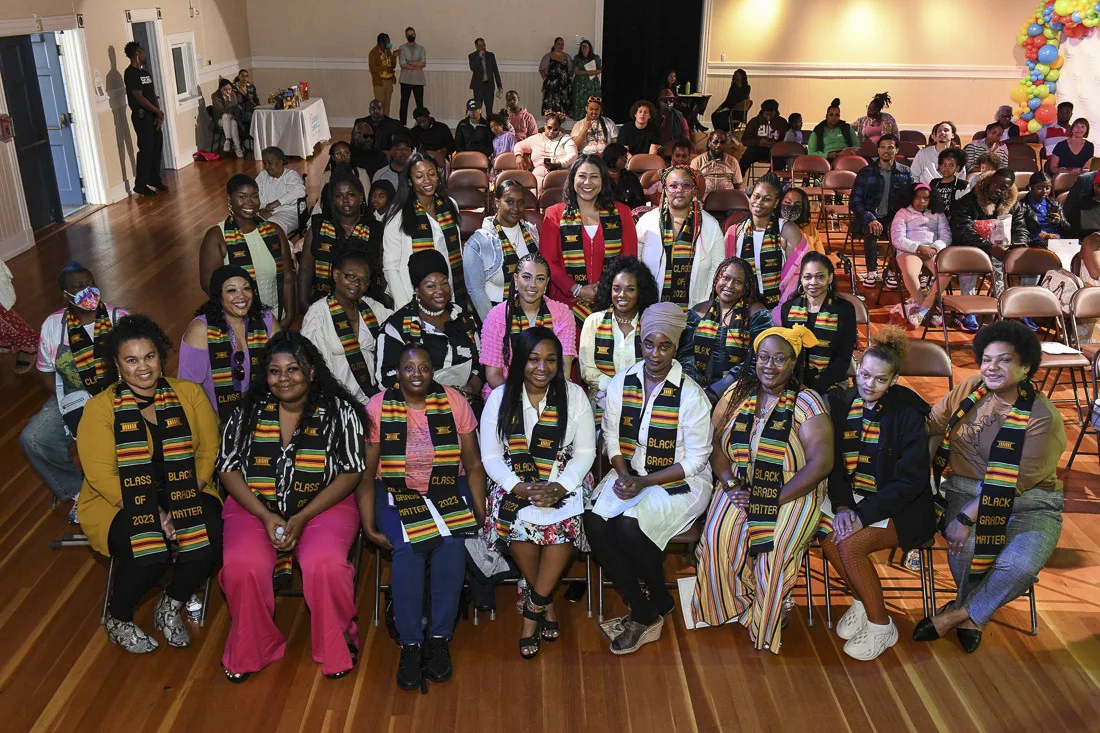“For some students in classes that I teach at [San Francisco State University and City College], I’m the first Black professor they’ve ever seen,” she said. “For this group, it was really important to not only show them that someone could be in higher education and be Black, but that, you know, this stuff is not as hard as you think.”
Besides teaching 12 core units of child growth and development to the cohort, Sullivan facilitated discussions about the Black experience and how to respond to and care for children who have experienced neglect, abuse, violence, family separation, racism and other traumas. Emerging research has found that toxic stress from these types of trauma can disrupt children’s brain development and undermine their ability to learn.
“First, we talked about how we got this way. And then, how do we find a way to make sure that when we’re helping kids grow, that we are avoiding some of these dangerous pitfalls, barriers and situations that could cause trauma and how could we get around them? And then if we can’t get around them, how do we help people get past them?”
Among this year’s cohort is Djimon Asberry. The 25-year-old said those lessons validated her decision to become an early educator. Asberry had plans to become a nurse after graduating from a historically Black college in east Texas two years ago, but a summer job caring for babies and toddlers at a daycare made her realize that she could make a difference in a child’s life.
“I found a passion that I didn’t know I had,” she said.
In the pipeline program, Asberry said, having a Black professor and an all-Black cohort created a supportive environment where everyone pushed each other to do their best.
“It’s not ‘no, you’re not going to finish,’ you’re going to finish, you’re going to be successful,” she said. “Because they understand everybody has a life, everybody goes through things but they still push and encourage you and check on you every month to make sure your mind and mental [health] is correct so you’re able to finish.”
Asberry recently got a job as a substitute teacher at a Head Start program, but she’s thinking of taking more classes so she can one day open her own daycare.

Another student was Sullivan’s own 35-year-old son, Matthew, who had been helping out at his mother’s daycare, Baby Steps Nature School, for years before enrolling in the pipeline program. He said although he went to art school and has a bachelor’s degree in Recreation, Parks and Tourism Administration, he wants to one day run the family business.
“I just think that there’s value in doing this kind of work,” he said.
The infants under his care “make this worthwhile because I get to see them grow. I get to see them go from being little sprouts to tall giants that can actually change the world.”

